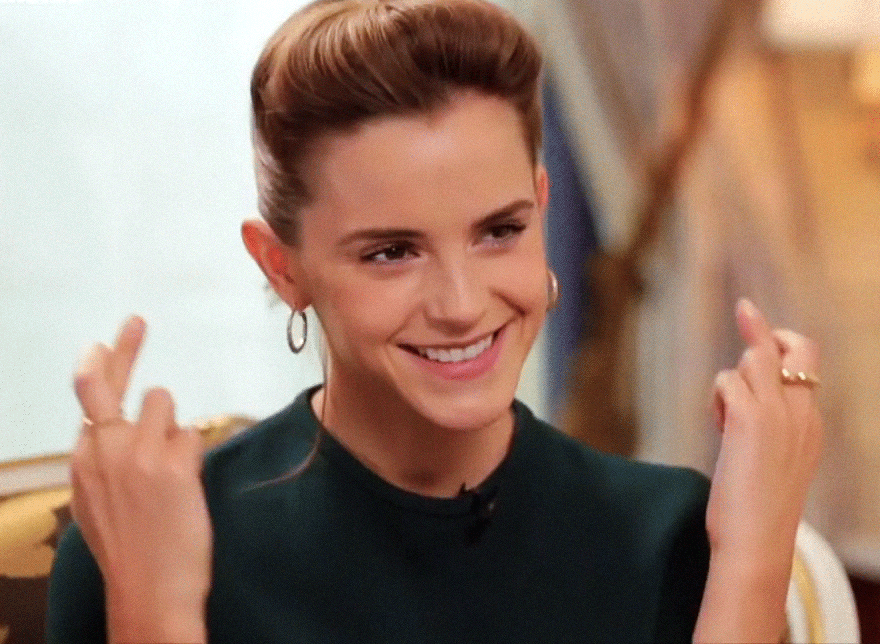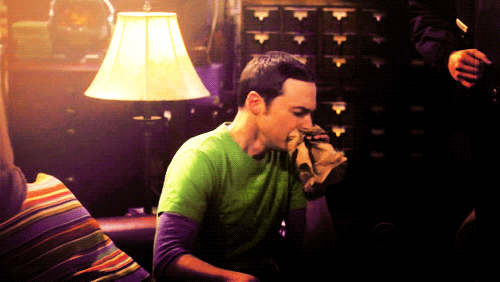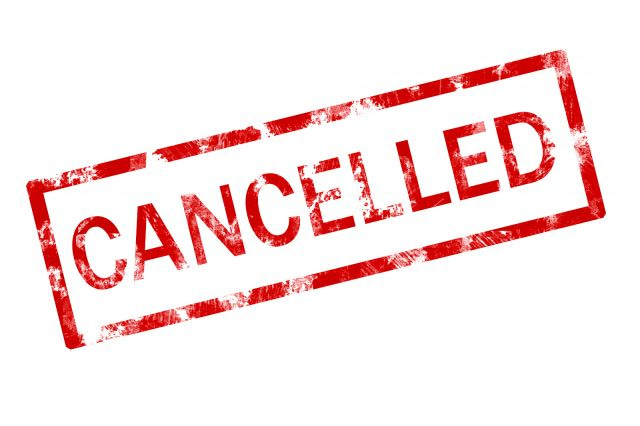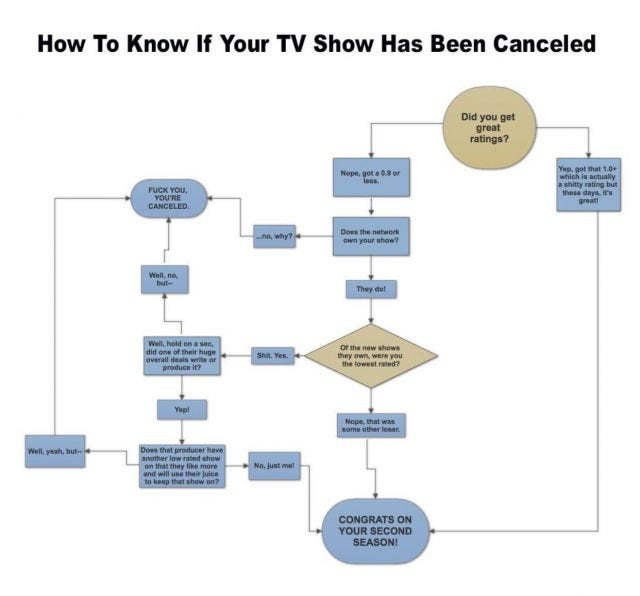EPISODE 315.99: I JUST WANT TO BE UPFRONT WITH YOU
POP CULTURE SPIRIT WOW
If you were on social media or any pop culture blogs at the end of last week you might have noticed that things got a little...crazy. Suddenly and seeming all at once, as though in conjunction, All of Your Favorite Shows on All of the Networks were cancelled. Lucifer, Brooklyn Nine-Nine, The Expanse, Quantico, Designated Survivor, Marvel’s Inhumans, Rise, Alex Inc., Life Sentence, Scorpion, Superior Donuts, The Last Man on Earth, The Exorcist GONE GONE GONE GONE.

(Maniacal Laugh)
The reaction online, especially to some of the younger or nerdy-skewing shows like Lucifer, Brooklyn Nine-Nine, The Expanse and The Last Man on Earth, landed somewhere between this:

This:

And this:

In fact, none of this was a coincidence. The Show-Killing stars align every year, in fact, at the end of the second week of May, because the third week of May is what is known in the TV world as Upfronts.
Starting first thing today at Carnegie Hall in New York, each of the major (aka the free-to-air) networks – ABC, CBS, NBC, FOX and the CW -- plus Turner, Univision and ESPN – will spend the week rolling out their new fall schedule to an audience of potential advertisers, trying to convince them to waste invest their advertising dollars into their shows in the year to come.
There is no overstating the importance of the week for those TV networks (which also include a whole lot of basic cable channels owned by them). The upside of free-to-air networks is that we don’t have to pay to watch their programs (supposedly) (for now) (save your pennies).
But it also means someone else does have to pay, and that’s the advertisers. There’s other sources of income, too, like foreign distribution or, if your show does well and lasts long enough, syndication rights – although only if the network owns the show (we will come back to that, it’s oh so important right now); but mostly to produce the shows you love – which let’s be honest, is a pretty small number, network TV cancels the overwhelming majority of new shows it puts on every year, sometimes almost immediately, always at huge expense, and that’s after those programs have made it through a vetting process that involves producing many more pilots, also at huge expense, their system is basically broken, it’s amazing we still have network TV at all.

(At a network like AMC they might have dozens of pilot ideas in development. But usually all that means in terms of investment is paying a writer and production company. Very few of those scripts would be greenlit for production, and unlike the network system, most of the time if a script gets the go ahead it’s straight to series – that is to say, they don’t waste a ton of money on shooting a pilot first and then decide; they wait until they have a script and a team they feel sure about and then they say go.)
So the Upfronts are basically Mad Men, but with TV advertisers. You wheel out your big name stars and show, have them song and dance for the money people, cut sizzle reels of all your new shows, follow up with lots of big parties at night (I’m sure there’s never any terrible things that happen there), and then...

Yeah, it’s all ridiculous. Because let me ask you, other than during live sports, are you watching TV advertisements these days? In our current age of DVRs and time-shifted TV (aka I can watch my show whenever I want), fewer and fewer do. The networks know this and continue to try to adapt by everything from online ads in their shows to add-on subscription services like CBS began last year, with additional programs (great programs, in fact, better than what they have on the network if you ask me) offered only online for a certain amount a month.
And if that sounds like it could be trouble down the road if all the networks get into it, yeah it is, the advertiser model is completely out of date, and at some point soon the advertisers are not going to have it.
AND NOW A WORD FROM OUR SPONSOR
I speak about these things as though I am a TV executive and I know. Of course I’m not and I don’t. Live Forever, Free-to-Air Network TV!
It’s just very hard to see how either the networks or the advertisers’ practices are sustainable. Or even just smart.
AND NOW, BACK TO UPFRONTS!
Because Upfronts are about getting ad execs entertained/plastered then talking them into buying ads the networks announcing their fall line-ups, the weeks before end up being about clearing the decks, as it were – or, a more apt metaphor, doing controlled burning of the “overgrowth” so that new trees may grow.
(The TV Business is Fun and Easy!)
Some of that is happens long before Upfronts. (See: The Mayor.) A lot of is not, either because the shows in question have great fanbases or critical acclaim or pressure from execs (Marvel’s Agents of SHIELD was reportedly reupped last year against the wishes of ABC’s execs because Disney – which owns ABC -- wanted a Marvel show on the network; frankly it was a good decision, the show had finally found its legs in season 4 and season 5 has been pretty strong, too, don’t you dare cancel it this week ABC); or because execs aren’t sure about the stuff they have in the pipeline. Everyone wants to be on the board the “next” big thing as compared to the “last” (aka the current), but at the same time there’s a lot of security in the thing you already know.
Then there’s the other aspect of money that plays into all this. When it comes to TV there are actually not one but two main players: The network, which distributes the show too all of us out there in TV Land; and the studio, which operates independently from the network and is the body actually responsible for making the show from day to day.
You don’t hear much about studios, it’s all about the networks – sort of like you never hear about the writer on a movie, which totally makes sense it’s not like they came up with the thing themselves or wrote the script or anything.

But studios are a big deal. They’re the ones that actually make the shows you love, and also “This is Us”, which you think you love but some day you’re going to shake your head and we will laugh about that.
99% of the time I’m wrong about this stuff but this one time I’m right, you wait and see.
I’m no expert on TV financing (or any kind of financing, God knows). But basically, when a network greenlights a show, it agrees to pay a certain amount to the studio per season for a given number of seasons to pay for it. And assuming the studio and the showrunner in charge of the show do their jobs well, that amount will cover their costs and leave them a little sugar (or a lot of sugar, depending; you hear stories where the studio tries to hold out on their own shows so as to keep a little more for themselves. The TV Business is fun and easy!)
There’s two big upsides in all of this for the studio. If the show lasts long enough, the network agrees to take over the costs.

The Scene from the Studios, The Next Day
I know! It sounds crazy. But think of it this way: In the early years on a hit show, a studio is basically like George Clooney on ER. Yeah, he’s Rosemary Clooney’s nephew, and he was on The Facts of Life, but basically he’s a nobody (aka he has no bargaining power), and his first contract reflects that.
Meanwhile the network made a zillion dollars on advertising and selling everything and anything they could think of with George Clooney’s face on it.
(Don’t tell me if ER wasn’t on TV there wouldn’t be a George Clooney body pillow. There would absolutely be a George Clooney body pillow.)
But when Clooney’s contract is up, oh honey it is on.

The Scene from the George Clooney, The Next Day
For a studio, it’s the same way – in the beginning, all they get is what they agreed to, even if the show is a cash cow. And if they survive past that initial contract, Bazinga.
The other thing is, the studio retains syndication rights – rights to sell the show for big money to cable networks to air after the news and on Saturdays and thirty years later. The network might have their logo plastered all over it in the beginning, but they are only the distributors. The studio are the owners.
So for network TV it's all about the early money – the money they make from advertisers and merchandising. If it’s a hit show “early” can still mean a lot of years, because they can sell ads that nobody watches to drunk execs this week for tons more per second and also more merch to us. But for studios the real money is the money that comes later.
SO WHY DID THE SHOW I CAN’T LIVE WITHOUT AND EVERYONE LOVES GET CANCELLED?
Yeah. About that.
Top Ten Reasons Your Show Got Cancelled 1) You are literally the only person who was watching it. (This is usually the reason your show got cancelled.)
2) It was terrible (aka see #1).
3) It was not quite terrible. (Still see #1).
4) It was terrible with rich people, people under 45 and not on CBS (aka you and all your friends are watching it but you do not matter).
5) It was bold/brave/ahead of its time. (Depending on the show this is either true or a polite way of saying #2. Either way see #1.)
6) The network just did not understand it. (See: Firefly.)
7) It took too long to sell itself, (aka two episodes). (See: Firefly.)
8) The person in charge of the network/the vice president in charge of the area that includes your program changed, or is a no-taste monster, or is your dad and is trying to teach you something in a really public, messed up way.
9) "What people want is topical comedies about white people like Roseanne" (aka the network's sense of what's gonna make money changes; meanwhile behind the scenes all the amazing young execs who have been fighting to do something more than regurgitate garbage are nodding but shrieking with their eyes).
10) A big hit on the network is about to end, and your show doesn't look strong enough to replace it. (See: NBC comedy post-Friends. But also #1.)
There's a bunch of other reasons, of course.
The most interesting: the wrong people own your show.
You know how I said the studios own the show? Well more and more today, the studios that own our shows are themselves owned by the networks.
That can work for us or against us. If you’re the network and you’re coming up on that PLAYER ONE HAS JUST LEVELED UP TO BOSS moment with a show owned by a studio you don't own, it's the Come to Jesus, gut check moment. Do we love this show enough to start forking out serious dough of our own for it? Or is this moment we send the text saying “I’ll always remember Paris, but I think we’ve grown apart.”
(There’s actually a kind of great writing/pitching/preaching/life lesson in this: The big moments you have to watch out for are the moments that you provide an off-ramp. I’ve written about this with preaching before: reference politics, even just a little, in a homily right now, and I guarantee you will lose your congregation, even if your comment is brief and anodyne. Everyone’s just way too primed to react.
Sometimes those off-ramps are avoidable. But sometimes they’re not. The moment you get to the end of a contract is a natural moment where both sides consider again what they’re doing. There’s no avoiding that. All you can do is be ready as it approaches, or maybe try to get the outcome you want beforehand.)
When the network also owns the studio, none of that has to happen. All the gold is going to the same pot, basically. So let’s just keep dancing, you know?
If you look at the shows currently on the networks, an overwhelming majority of them are run by studios owned by the network. Everything on the CW is produced by CBS or Warner Brothers (the two companies that own the CW); so is most of the stuff on CBS.
On NBC, tons of stuff – The Good Place, Good Girls, Law & Order: SVU all the Chicago shows) come from Universal – which owns NBC. 20th Century FOX produces almost everything on ABC—just kidding, they do everything on FOX. Shonda Rimes produces everything on ABC – except not any more, she’s got a NINE FIGURE deal with Netflix (CALL ME SHONDA), ABC Studios produces most of their stuff.
But every network (except the CW) also has a couple shows that weren’t produced by the network’s own studios. Like for instance, Lucifer on FOX, that was produced by Warner Brothers. And yeah, it has a good fan base, if not the best ratings. It was also finishing its third season. Hmm..

(FOX is also going through a buyout from Disney. And part of that is going to be about buying all their TV shows. Surprise surprise, every new show on FOX next year is produced by 20th Century FOX. Mama don't raise no fools. We gonna get us some Disney money!)
Brooklyn Nine-Nine went the same way. The show had originally been developed by NBC through its Universal TV. It has a great fan base, creators who had done the much-beloved The Office and Parks & Rec, was just finishing five seasons on FOX – uh oh, that money clock is definitely ticking, what's gonna happen...

BUT WAIT! SOMETIMES THE TV BUSINESS REALLY IS FUN AND EASY!
(OKAY, MAYBE NOT EASY!)
A day later, NBC – which again, is owned by Universal, and as such had been the first network to consider Brooklyn -- stepped in to pick it up for 13 episodes themselves. Because assuming the show doesn’t suddenly tank in quality (it won’t), it’s all upside, at least in the short term. They own the show, they own the studio, they’re printing money.

Reactions on social media were obviously ecstatic, and also clever, which fits the fan base to a tee. My favorite reaction by far was this idea of what else maybe fans can convince NBC to do.
So, there you have it. Upfronts, a dinosaur, loping through the forests and ignoring that light that seems to keep getting brighter up in the sky. Who cares? It’ll definitely go away eventually, right?

(Wow. This was going to be a fun little extra newsletter. Four hours later...
If you're interested in more about the upfronts, here's the schedule. And here's all the shows that have been renewed and cancelled.
And if you'd like a fancy flow chart to help you understand why your show lived or died (complete with some very Hollywood language and sentiment).


